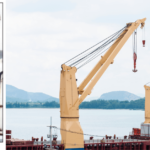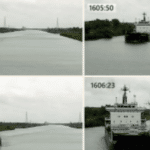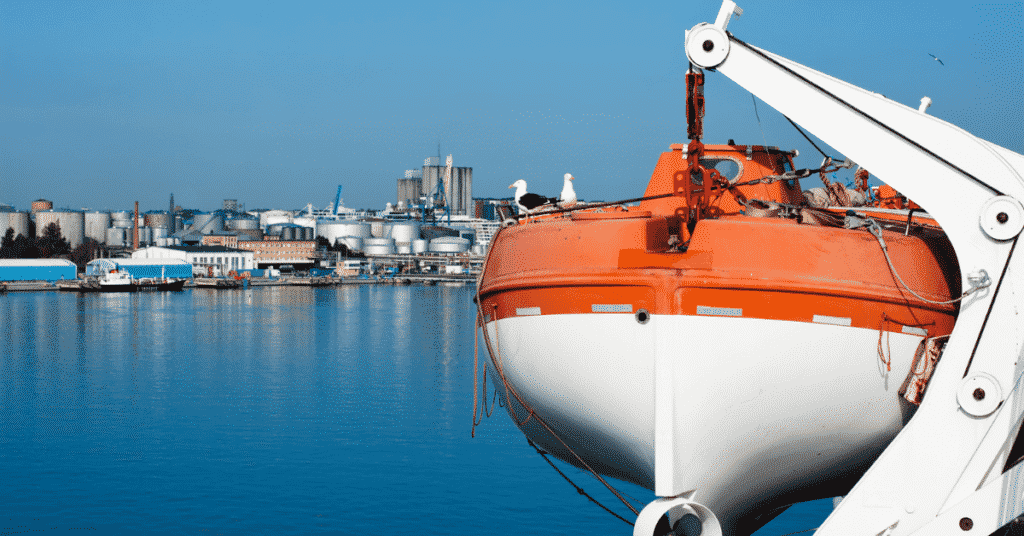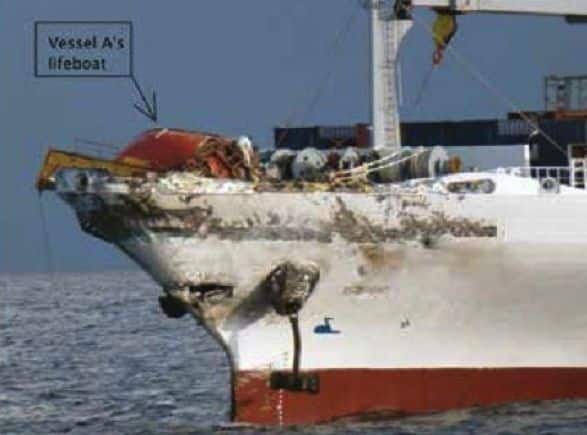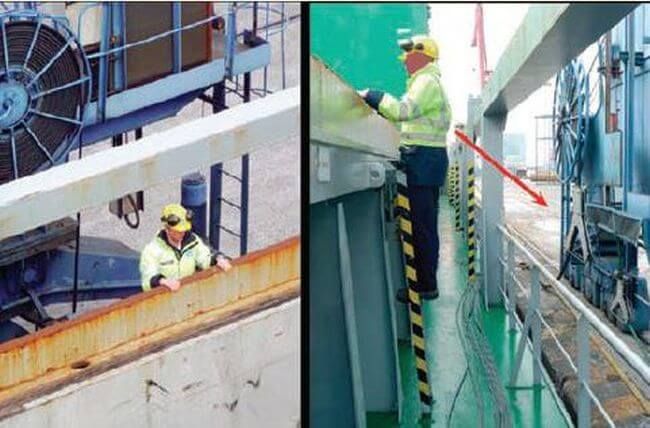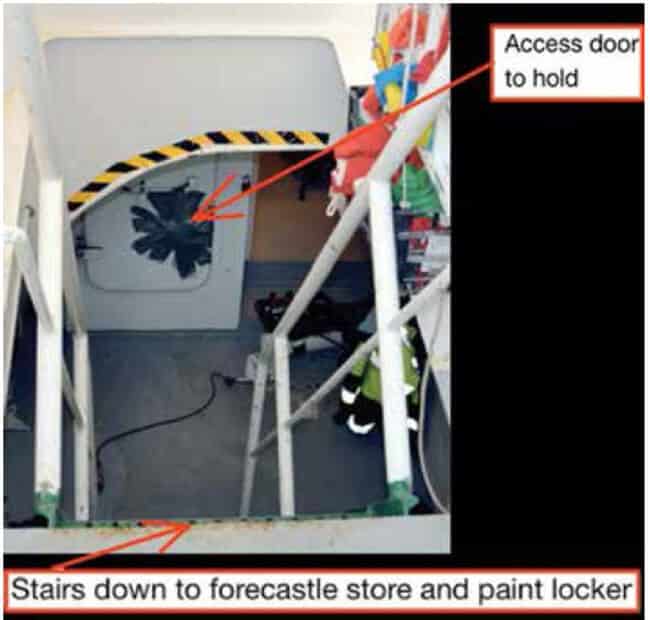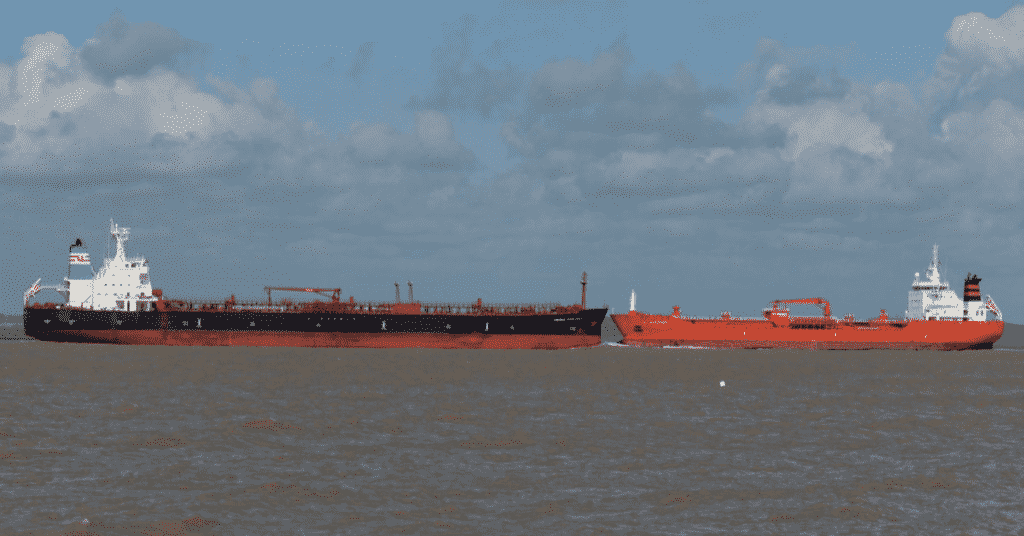Real Life Incident: Hold Access Fatality/Lack Of Oxygen
A bulk carrier loaded with coal was at berth and crew were preparing to discharge. The bosun, fitter, and deck cadet were to open all the cargo hold hatch covers. After the hatch cover for cargo hold 1 was opened, the fitter told the Bosun that he needed to enter the access way to hold 1 to retrieve an air nozzle which he had dropped while clearing the hatch coaming at the previous port.
The bosun and ditter opened the aft access hatch to cargo hold 1 but the bosun told the fitter to wait at least 20 minutes before entering. Some time later, the deck cadet walked by the cargo hold and looked into the open hatch. He saw the fitter lying motionless below on the coal close to the access ladder. He immediately notified the bosun using his portable radio. The bosun quickly arrived on scene and, without raising the alarm, went directly down the access ladder in an attempt to rescue the fitter. Shortly after entering the cargo hold, the bosun lost consciousness.

The Chief Officer heard the deck cadet’s radio transmission and went to the access hatch. He immediately recognised the need to carry out an enclosed space rescue. The alarm was raised and crewmembers assembled and donned breathing gear. The two victims were extricated; the Bosun regained consciousness after being brought on deck but the fitter was not breathing and had no pulse. Despite resuscitation efforts, the fitter was pronounced deceased at a local hospital.
Among other things, the investigation found that; the Company’s enclosed space entry procedures were not followed. In particular, the ship’s officers had not been notified of the need or intention to enter the hold. The first, failed, attempt to rescue the fitter without initiating the enclosed space rescue procedures was a grave error that not only delayed the recovery of the fitter but put the Bosun’s own life in danger.
There was a distinct lack of awareness on the part of certain crewmembers on the hazards of entering a cargo hold containing coal without first complying with the Company’s enclosed space entry procedures.
Some of the initiatives taken after the investigation:
Locking devices were fitted to the access hatches for all cargo holds and other enclosed spaces on board the vessel.
The Company’s SMS was updated to require permanent signs at the entrance to enclosed spaces warning of the risk of asphyxiation if entered without taking proper precautions.
A training initiative was implemented to increase awareness of the hazards of entering enclosed spaces without taking proper precautions.
Lessons learned
- Signs are not enough! Many vessels now routinely have signage posted at the cargo hold access hatches that prohibit entry unless the enclosed space entry procedure is followed. Yet, year after year, crew are still dying in cargo holds with less than adequate oxygen or the presence of other gases that do not support life.
- -Locking devices on cargo hold access hatches are one way to mitigate risks of unauthorized entry but the best protection is training and awareness of the risks. A cargo hold and its associated access ways are enclosed spaces.
- Pre-identifying all enclosed spaces on a vessel and posting a reminder at the entrance to each space can be considered a best practice.
Reference: The Nautical Institute
Do you have info to share with us ? Suggest a correction
About Author
Marine Insight News Network is a premier source for up-to-date, comprehensive, and insightful coverage of the maritime industry. Dedicated to offering the latest news, trends, and analyses in shipping, marine technology, regulations, and global maritime affairs, Marine Insight News Network prides itself on delivering accurate, engaging, and relevant information.

About Author
Marine Insight News Network is a premier source for up-to-date, comprehensive, and insightful coverage of the maritime industry. Dedicated to offering the latest news, trends, and analyses in shipping, marine technology, regulations, and global maritime affairs, Marine Insight News Network prides itself on delivering accurate, engaging, and relevant information.
- Real Life Incidents: Near Miss In Open Water And Good Visibility
- Real Life Incident: Poor Situational Awareness Leads to Collision
- Real Life Incident: Monkey’s Fist Knocks on Office Window
- Real Life Incident: Paint Storage Slip-Up On Ship
- Real Life Incident: Checklist Mentality Is A Burning Problem
- Real Life Incident: Vessel Speed Exacerbates Bank Suction
Latest Case studies Articles You Would Like:
Subscribe To Our Newsletters
By subscribing, you agree to our Privacy Policy and may receive occasional deal communications; you can unsubscribe anytime.







